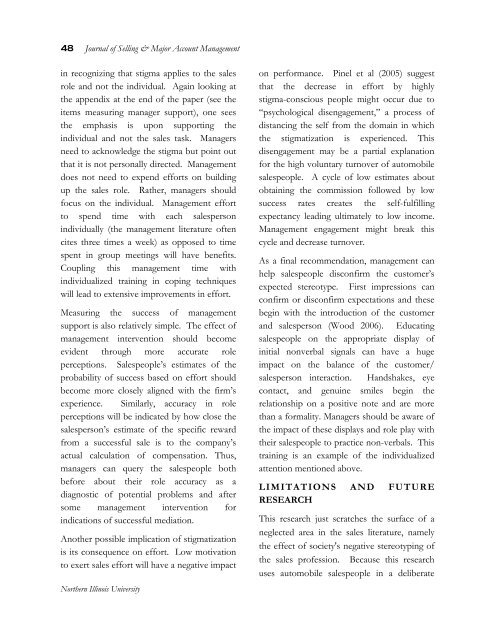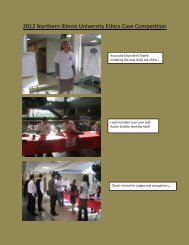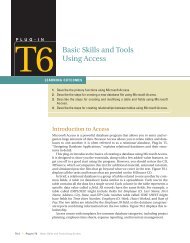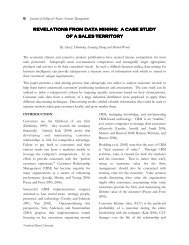The Impact of Stigma: Negative Stereotypes of Salespeople
The Impact of Stigma: Negative Stereotypes of Salespeople
The Impact of Stigma: Negative Stereotypes of Salespeople
You also want an ePaper? Increase the reach of your titles
YUMPU automatically turns print PDFs into web optimized ePapers that Google loves.
48 Journal <strong>of</strong> Selling & Major Account Managementin recognizing that stigma applies to the salesrole and not the individual. Again looking atthe appendix at the end <strong>of</strong> the paper (see theitems measuring manager support), one seesthe emphasis is upon supporting theindividual and not the sales task. Managersneed to acknowledge the stigma but point outthat it is not personally directed. Managementdoes not need to expend efforts on buildingup the sales role. Rather, managers shouldfocus on the individual. Management effortto spend time with each salespersonindividually (the management literature <strong>of</strong>tencites three times a week) as opposed to timespent in group meetings will have benefits.Coupling this management time withindividualized training in coping techniqueswill lead to extensive improvements in effort.Measuring the success <strong>of</strong> managementsupport is also relatively simple. <strong>The</strong> effect <strong>of</strong>management intervention should becomeevident through more accurate roleperceptions. <strong>Salespeople</strong>’s estimates <strong>of</strong> theprobability <strong>of</strong> success based on effort shouldbecome more closely aligned with the firm’sexperience. Similarly, accuracy in roleperceptions will be indicated by how close thesalesperson’s estimate <strong>of</strong> the specific rewardfrom a successful sale is to the company’sactual calculation <strong>of</strong> compensation. Thus,managers can query the salespeople bothbefore about their role accuracy as adiagnostic <strong>of</strong> potential problems and aftersome management intervention forindications <strong>of</strong> successful mediation.Another possible implication <strong>of</strong> stigmatizationis its consequence on effort. Low motivationto exert sales effort will have a negative impactNorthern Illinois Universityon performance. Pinel et al (2005) suggestthat the decrease in effort by highlystigma-conscious people might occur due to“psychological disengagement,” a process <strong>of</strong>distancing the self from the domain in whichthe stigmatization is experienced. Thisdisengagement may be a partial explanationfor the high voluntary turnover <strong>of</strong> automobilesalespeople. A cycle <strong>of</strong> low estimates aboutobtaining the commission followed by lowsuccess rates creates the self-fulfillingexpectancy leading ultimately to low income.Management engagement might break thiscycle and decrease turnover.As a final recommendation, management canhelp salespeople disconfirm the customer’sexpected stereotype. First impressions canconfirm or disconfirm expectations and thesebegin with the introduction <strong>of</strong> the customerand salesperson (Wood 2006). Educatingsalespeople on the appropriate display <strong>of</strong>initial nonverbal signals can have a hugeimpact on the balance <strong>of</strong> the customer/salesperson interaction. Handshakes, eyecontact, and genuine smiles begin therelationship on a positive note and are morethan a formality. Managers should be aware <strong>of</strong>the impact <strong>of</strong> these displays and role play withtheir salespeople to practice non-verbals. Thistraining is an example <strong>of</strong> the individualizedattention mentioned above.LIMITATIONS AND FUTURERESEARCHThis research just scratches the surface <strong>of</strong> aneglected area in the sales literature, namelythe effect <strong>of</strong> society's negative stereotyping <strong>of</strong>the sales pr<strong>of</strong>ession. Because this researchuses automobile salespeople in a deliberate
















